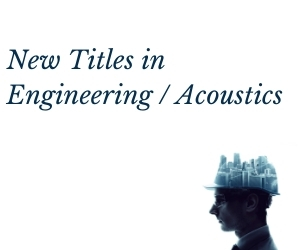
The question of how to effectively, efficiently, and responsibly manage used nuclear fuels is a concern of major impediment in the light of today's increasing usage of nuclear power and development of advanced nuclear reactors. This book focuses on two significant areas of (used) nuclear fuel: the reprocessing technology, and waste disposal and management. The book covers the fundamental knowledge, the current state-of-the-art, and future research activities for each topic.
This book provides readers with the fundamental knowledge behind of nuclear used fuel reprocessing and radioactive waste management, and their technical applications, and their requirements and practices; to make the readers aware of social, economic, and environmental concerns as well as technical research needs. The book covers two well-known and well-developed reprocessing technologies: aqueous reprocessing technology, and electrochemical pyroprocessing. On the subject of waste management, it covers the dry storage of used nuclear fuel, novel waste form design, and nuclear waste disposal.
This book is a good guide for readers who want to understand, apply, or develop the technologies.
Sample Chapter(s)
Chapter 1: Aqueous Reprocessing of Used Nuclear Fuel
Contents:
- Aqueous Reprocessing of Used Nuclear Fuel (Jack D Law)
- Fundamentals of Spent Nuclear Fuel Pyroprocessing (Michael F Simpson)
- Electrochemical Studies of Uranium in LiCl–KCl Eutectic Salt for an Application of Pyroprocessing Technology (Dalsung Yoon and Supathorn Phongikaroon)
- Safeguards of Pyroprocessing (Wentao Zhou and Jinsuo Zhang)
- Waste Disposal (Jean-Francois Lucchini)
- Spent Fuel interim Dry Storage System and Chloride-Induced Stress Corrosion Cracking (Yi Xie and Jinsuo Zhang)
- Crystalline Wasteform Phases for 137Cs and 90Sr: Structure and Stability (Hongwu Xu)
Readership: Professionals and Graduate Researchers studying or working in the fields of nuclear energy production, nuclear waste management, and nuclear waste treatment.
About the Editor

Jinsuo Zhang is currently Professor of the Nuclear Engineering and Science Program at Virginia Tech, USA. Before that, Prof Zhang was an Associate Professor and the director of the Center of Nuclear Materials and Fuel Cycle Research in the Nuclear Engineering Program at The Ohio State University (2012–2017). Through 2004 to 2012, Prof Zhang was a staff scientist at Los Alamos National Laboratory (LANL), USA, and he was a postdoc research associate of the same laboratory from 2001 to 2004. Prof Zhang received his PhD from Zhejiang University, China in 2001, and his BS from the same university in 1997. Prof Zhang focuses on studies of advanced used nuclear fuel reprocessing, safeguards and non-proliferation, nuclear materials, material compatibility and materials corrosion in advanced and current nuclear reactors.
About the Authors

Jack Law is a Chemical Engineer with 33 years of experience at Idaho National Laboratory (INL), USA in the areas of nuclear fuel reprocessing and the nuclear waste treatment. His work has primarily focused on flowsheet design and testing for separation of actinides, lanthanides and fission products from radioactive solutions, solvent extraction equipment testing, and facility design support. Jack is currently Manager of the Aqueous Separation and Radiochemistry Department at INL. He has contributed to over 50 peer reviewed publications, and has been awarded ten US patents and three Russian patents. He was awarded the AICHE Nuclear Engineering Division Robert E Wilson Award in 2016 and the INL Laboratory Director's Award for Lifetime Achievement in 2015.

Jean-Francois (Jef) Lucchini has been a scientist at Los Alamos National Laboratory Carlsbad Operations, USA for over 15 years. He is a technical expert on difficult transuranic waste to the Department of Energy Carlsbad Field Office and generator sites in support of the Waste Isolation Pilot Plant. He holds a PhD in radiochemistry from the University of Paris XI Orsay, France. He is author or co-author of more than 25 peer-reviewed publications on different topics of radioactive waste research and management, and an active member of the American Nuclear Society.

Phongikaroon earned his PhD and BS degrees in chemical engineering and nuclear engineering from University of Maryland, College Park, USA in 2001 and 1997, respectively. Prior to joining the Virginia Commonwealth University, USA in January 2014, he held academic and research positions at University of Idaho in Idaho Falls, USA; Idaho National Laboratory, USA; and the United States Naval Research Laboratory, Washington, DC. He has established the chemical and electrochemical separation of used nuclear fuel through pyroprocessing technology and extended his expertise toward reactor physics and material detection, and accountability for safeguarding applications. His work has been published in over 30 papers in peer-reviewed journals, and presented at over 90 international and national conferences and workshops.





























